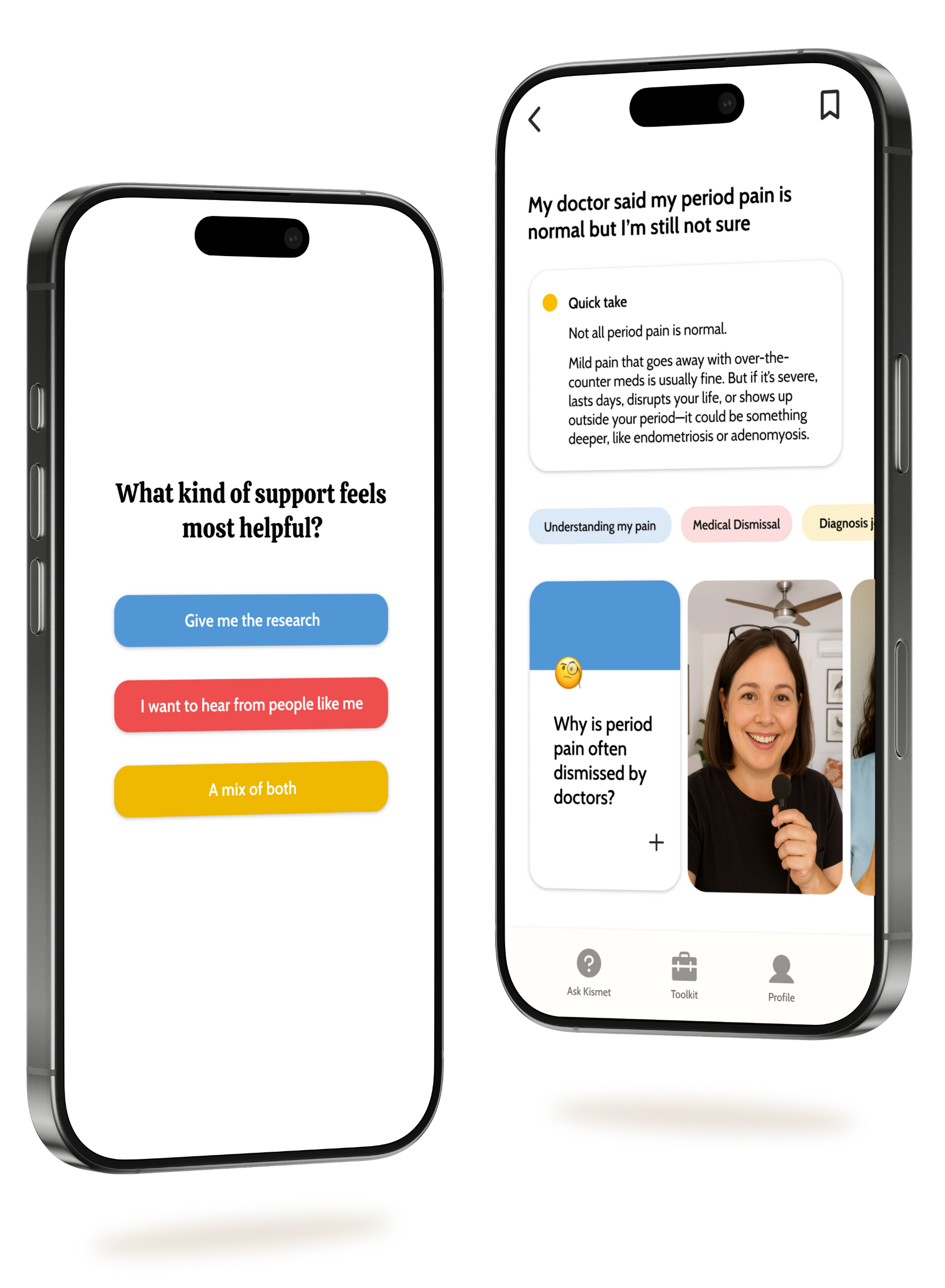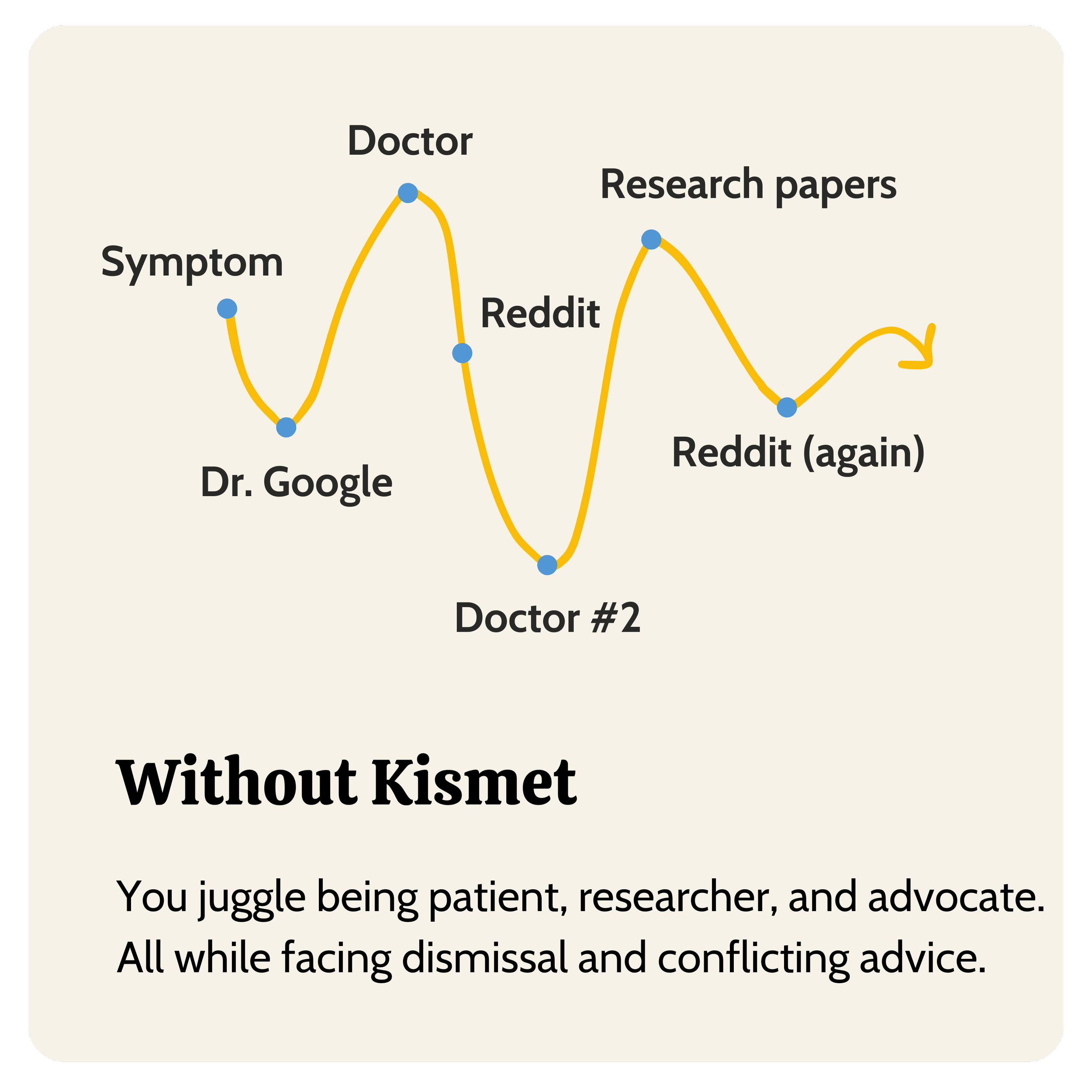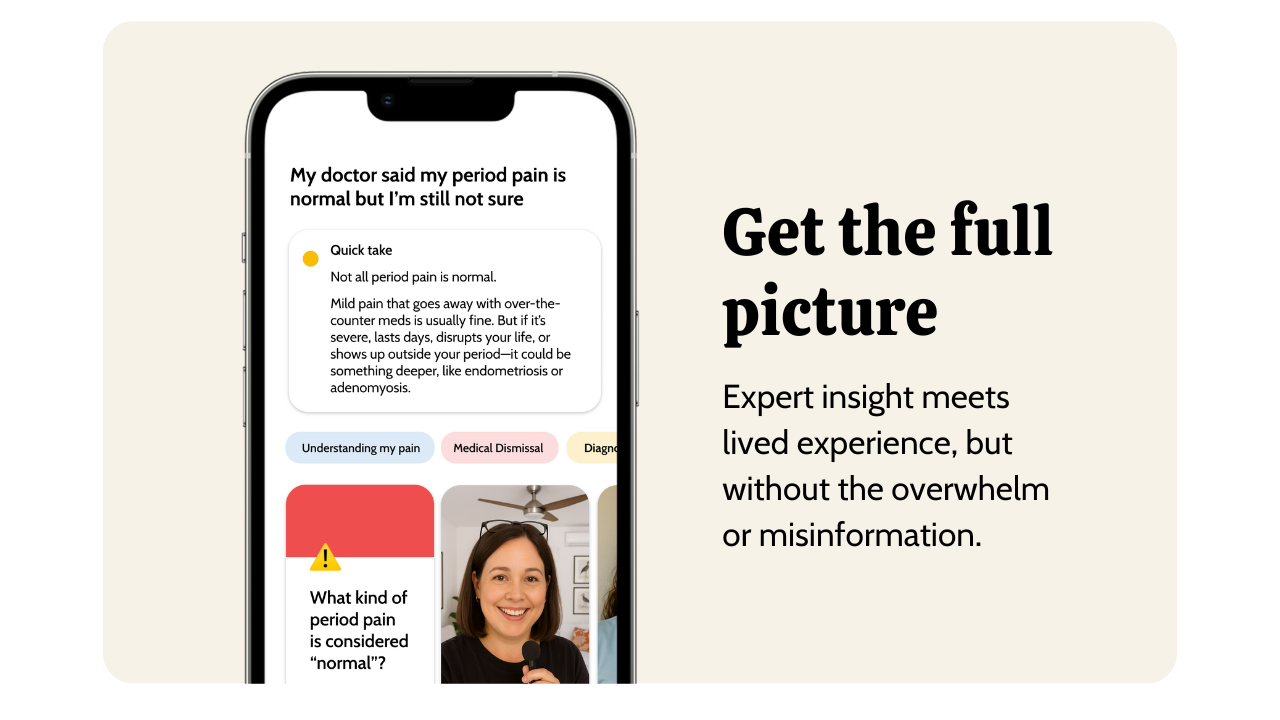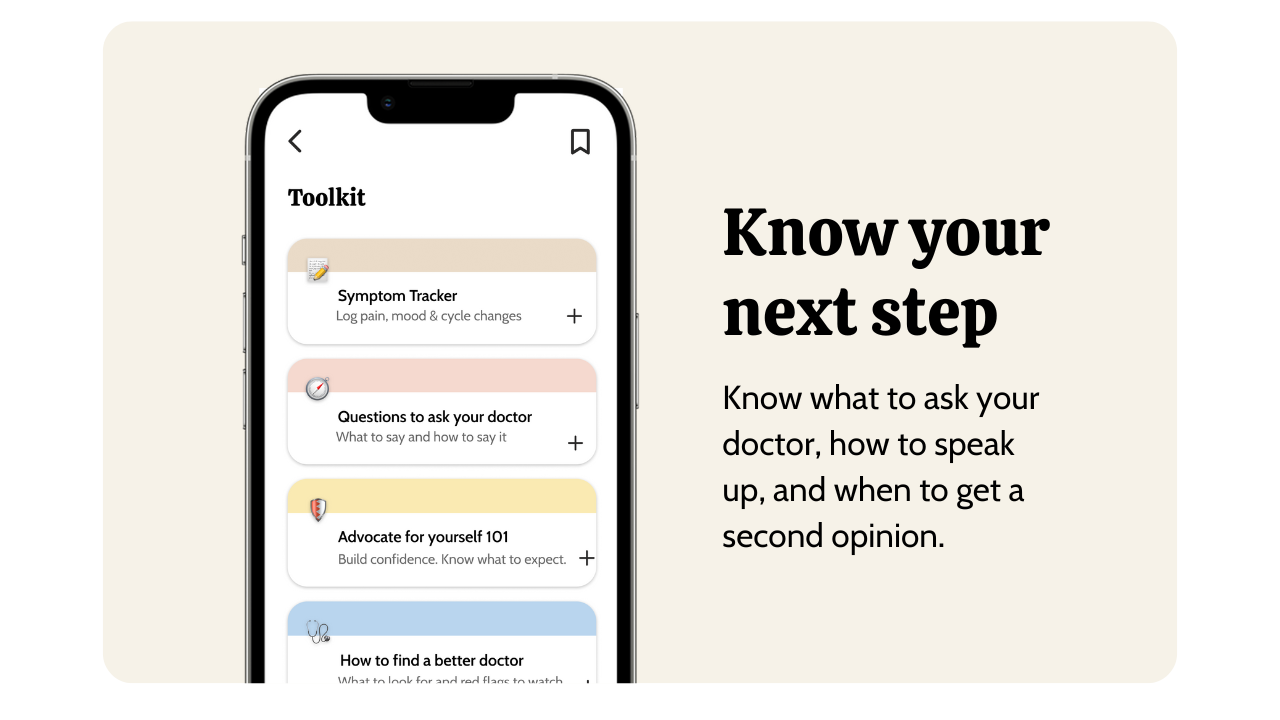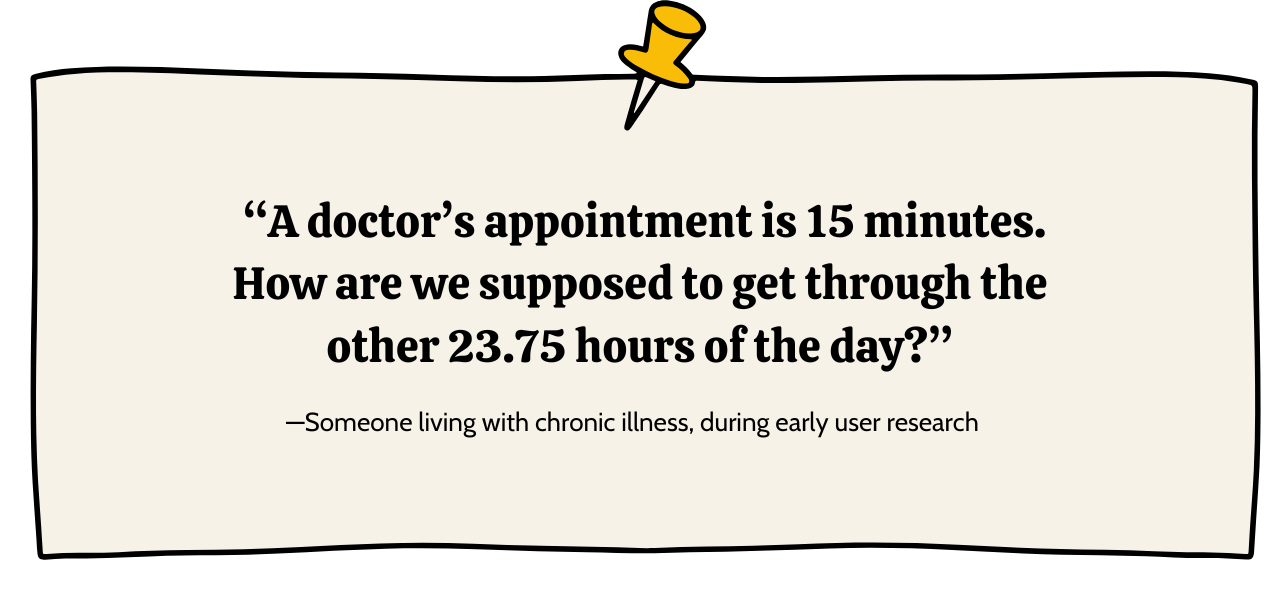Your symptoms are real
Kismet removes the emotional labor of navigating your health. Expert insight, lived experience, and clear next steps. All in one place.
You shouldn’t need 20 tabs open just to make sense of your health
Kismet connects the dots your doctor doesn’t have time for
FAQs
-
The problem isn’t a lack of information—it’s making sense of it all. What’s trustworthy? What’s relevant to you? And how do you know what to do next?
Kismet connects the dots for you. We bring together:
Medical facts, grounded in trusted sources and clinical guidelines
Vetted stories from people who’ve been there
Clear next steps, especially when your doctor didn’t explain what comes after
Supportive community, so you’re not figuring it out alone
Unlike forums, Kismet isn’t chaos. Unlike AI, it’s not cold. And unlike search engines, it doesn’t leave the emotional labor up to you.
-
Not at all. Kismet doesn’t replace your doctor—it helps you get more out of your care.
We’re here for the space between appointments—when you’re trying to prepare, process, or figure out what to do next. Kismet gives you the clarity, context, and confidence to walk into your next visit informed and in control.
-
Kismet is for anyone who’s ever felt overwhelmed, dismissed, or confused while trying to make sense of their health.
Whether you're preparing for a doctor’s visit, dealing with vague symptoms, or navigating something that doesn’t have easy answers—we’re here to help.
We’re starting with women’s health, where the gaps run deepest. But the problems we’re solving—fragmented care, confusing information, and feeling unheard—are universal.
-
Everything on Kismet is curated to be both medically trustworthy and emotionally grounded.
We source insight from peer-reviewed research and clinical guidelines, then translate it into plain, usable language. Every story you see is vetted for clarity and safety, and we’re working with clinicians to ensure everything is presented responsibly.
Kismet doesn’t give medical advice—but we do help you understand what’s going on, what others have done, and what to ask next.
-
We’re actively building and testing with early users. If you join the waitlist, you’ll be the first to know when it’s ready—and the first to try it.
Why Kismet?
Kismet means fate—or luck. And if you’ve ever tried to navigate the healthcare system, you know why luck matters.
In interview after interview, I heard the same story: “I only found the right doctor because I got lucky.” Whether it was a diagnosis finally caught after a decade, or a doctor who actually listened, it came down to chance. And in a system this broken, luck shouldn’t be what decides whether you get care.
It’s not just bad luck. Modern medicine overlooks the complexity of individual health experiences. And those gaps have consequences: delayed diagnoses. Dismissed symptoms. Worsening outcomes.
I created Kismet because everyone deserves that “lucky break”—without the odds stacked against them. It’s your guide and advocate through a broken system—connecting the dots between medical insight, real stories, and next steps. So you spend less time fighting for answers, and more time healing.
Better information leads to better questions. And better questions lead to better outcomes. That’s how care becomes systematic instead of serendipitous—that’s Kismet.
Thanks for being here,
Jenny
Founder, Ask Kismet
Want to help shape Kismet?
Curious about Kismet or just want to connect? I’d love to hear your story—or anything else you want to share.

